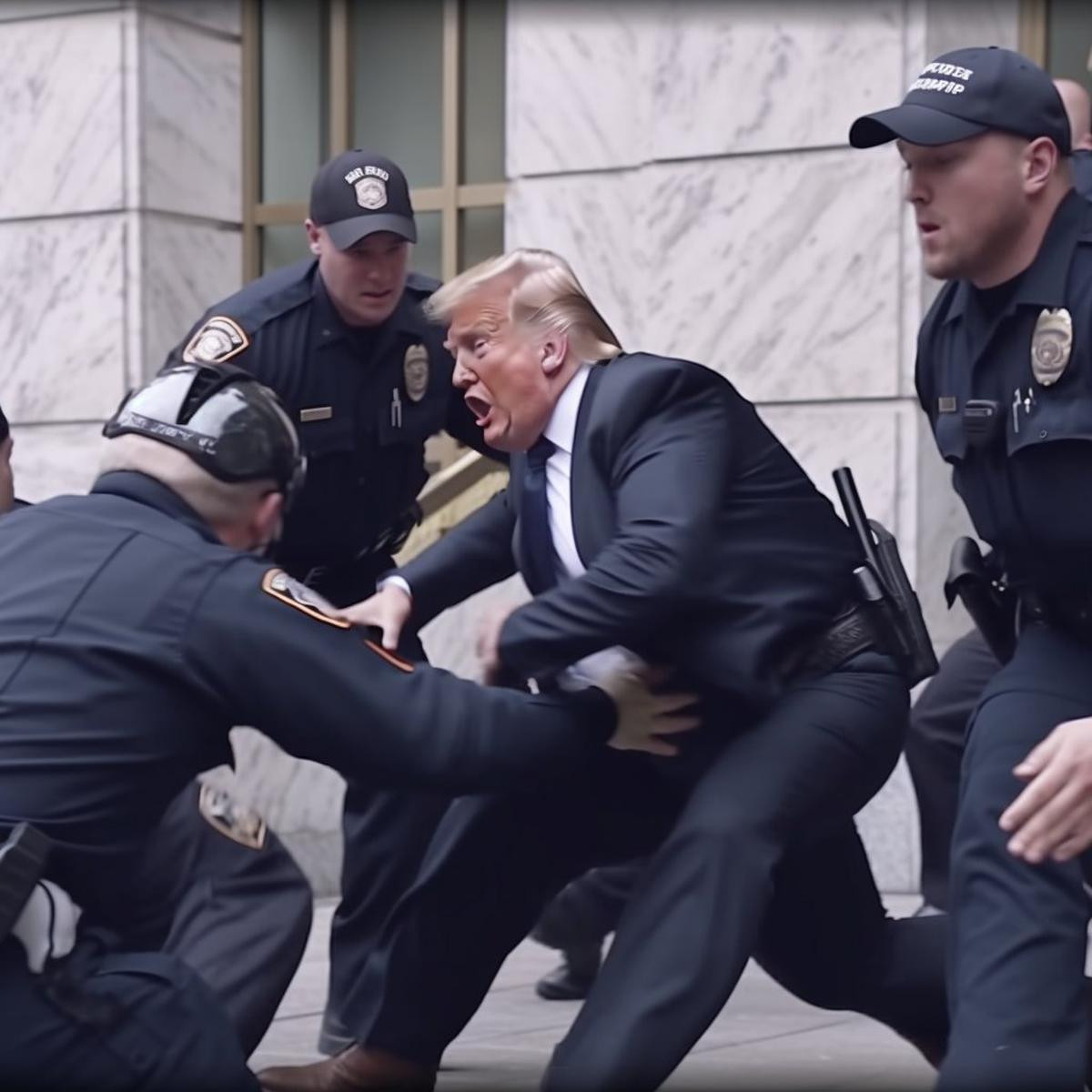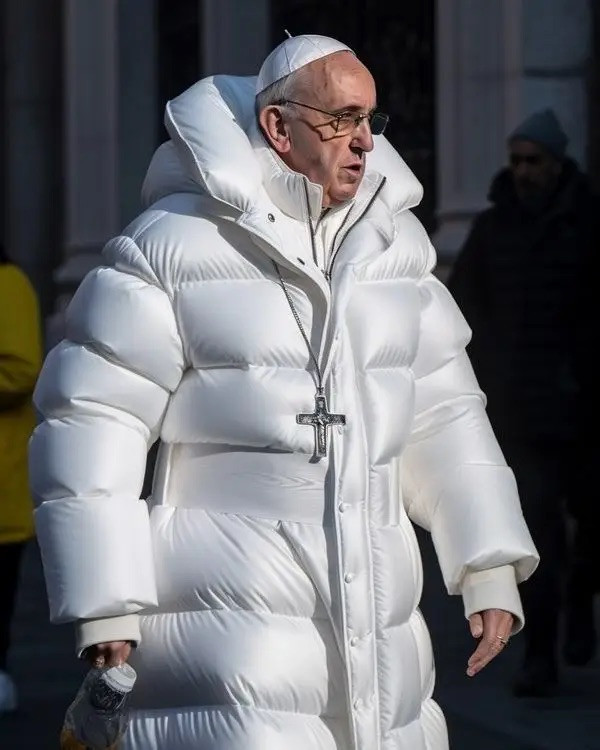Fake image of an explosion in the Pentagon – In an exclusive interview with SKAI, the famous photographer explains how miraculous this technology is for the art of photography, but also the dangers of its uncontrolled use.
By Korina Georgiou
The photo depicting an explosion in the Pentagon is going viral on Twitter, as is the one in which Pope Francis poses in a – particularly fancy for religious morals – down jacket. Of course, the photos with the former US president Donald Trump being forcibly arrested by the police authorities on the streets of Manhattan are also fresh in memory.
Photographic “clicks” that easily deceive the unsuspecting eye as to their authenticity are, however, creations of digital technology. In any case, the danger of profound misinformation and the undermining of democracy looms, and the need to limit the technology remains elusive.
It is undeniable that artificial intelligence is a scientific marvel, but the boundaries remain blurred and the need to create a regulatory framework is more necessary than ever to prevent it from turning into a weapon of mass destruction against humanity. The head of OpenAI, the company behind ChatGPT, explained it particularly eloquently at a congressional special committee hearing on the matter: “We painted it if this technology goes the wrong way. We want to work together with the government to prevent that from happening.”
Most experts are of the opinion that artificial intelligence is expected to change the course of human history. Bill Gates himself said it at a conference dedicated to artificial intelligence, that it is a technology that will bring great changes in the near future.
And a photographic product of artificial intelligence by German photographer Boris Eldagsen may have won a major prize in a prestigious competition, but the international community is not yet ready to discuss the ethics of artificial intelligence, let alone create the right ground for it. to effect, without jeopardizing the truth. In an exclusive interview with SKAI, the famous photographer explains how miraculous this technology is for the art of photography, but also the dangers of its uncontrolled use.
Korina Georgiou: A few days ago you were at the center of discussions when you rejected an award from a prestigious international competition after you revealed that the photo was not what it seemed and that your submission was the product of artificial intelligence. So why did you do this? Can you tell us what happened?
Boris Eldagsen: I applied to the competition not to win. I applied to do a test if photo contests are aware that AI photos can be submitted. And they have no such knowledge. To my surprise, I went so far as to be selected as the winner of one of the categories. When they told me that I had been selected, I then informed them that it is very important to have a conversation regarding the relationship between artificial intelligence and photography. I realized that, firstly, they are not interested in this discussion, and secondly, they don’t even have a clear position on artificial intelligence and photography. They didn’t even answer reporters’ questions about whether it’s artificial intelligence or not. Therefore, I realized that I have a clear position and cannot accept the award.
K.G. You’ve said in the past that AI isn’t meant to displace humans, but rather to liberate artists. How is technology reshaping the arts?
Boris Eldagsen: The advantage I have as an artist using artificial intelligence is that I am freed from limitations I had in the past. Limitations like money, location, equipment, models and so much more. It helps me “find” myself in places I couldn’t before.
K.G. Don’t you think it’s dangerous not to be able to tell if something is real or a product of artificial intelligence?
Boris Eldagsen: Yes, it is. It opens all the doors to misinformation, and that’s something we have to deal with as democracies.
K.G. We’ve heard Elon Musk warn that artificial intelligence technology could cause cultural catastrophe.
Boris Eldagsen: Any tool of humanity can be used in a positive way and in a negative way. It’s like a knife. You can use it to cook, you can use it to kill. But now we are in a situation where we have to find out if this knife can take on life itself, can it “take off arms and legs” and “walk” away from the table? I don’t know what the consequences will be, but I’m very skeptical about whether we can stop it.
K.G. Do you think this technology will change the course of human history, as the great philosopher Noah Harari claims?
I think yes! It is one of the greatest technological revolutions, like the discovery of the steam engine, electricity, the internet.
Watch the interview here:
Source :Skai
I am Terrance Carlson, author at News Bulletin 247. I mostly cover technology news and I have been working in this field for a long time. I have a lot of experience and I am highly knowledgeable in this area. I am a very reliable source of information and I always make sure to provide accurate news to my readers.












